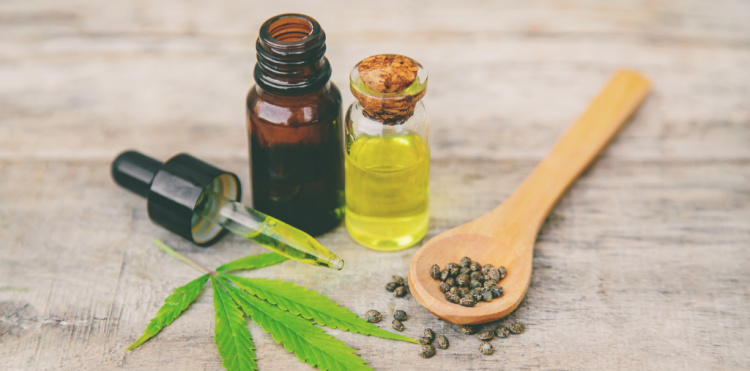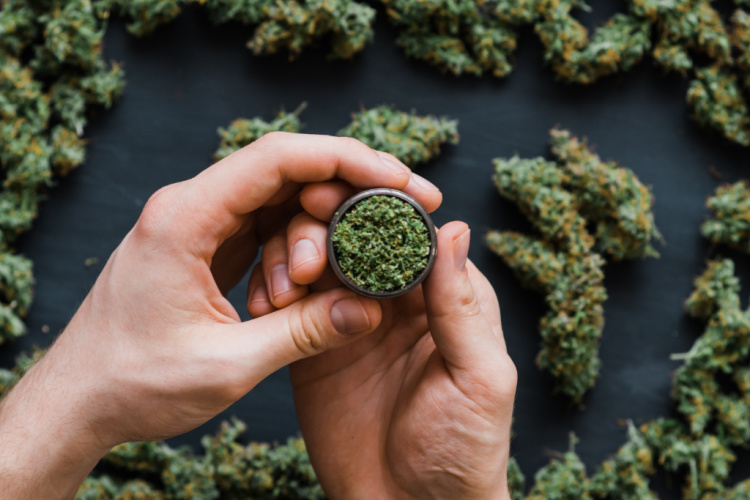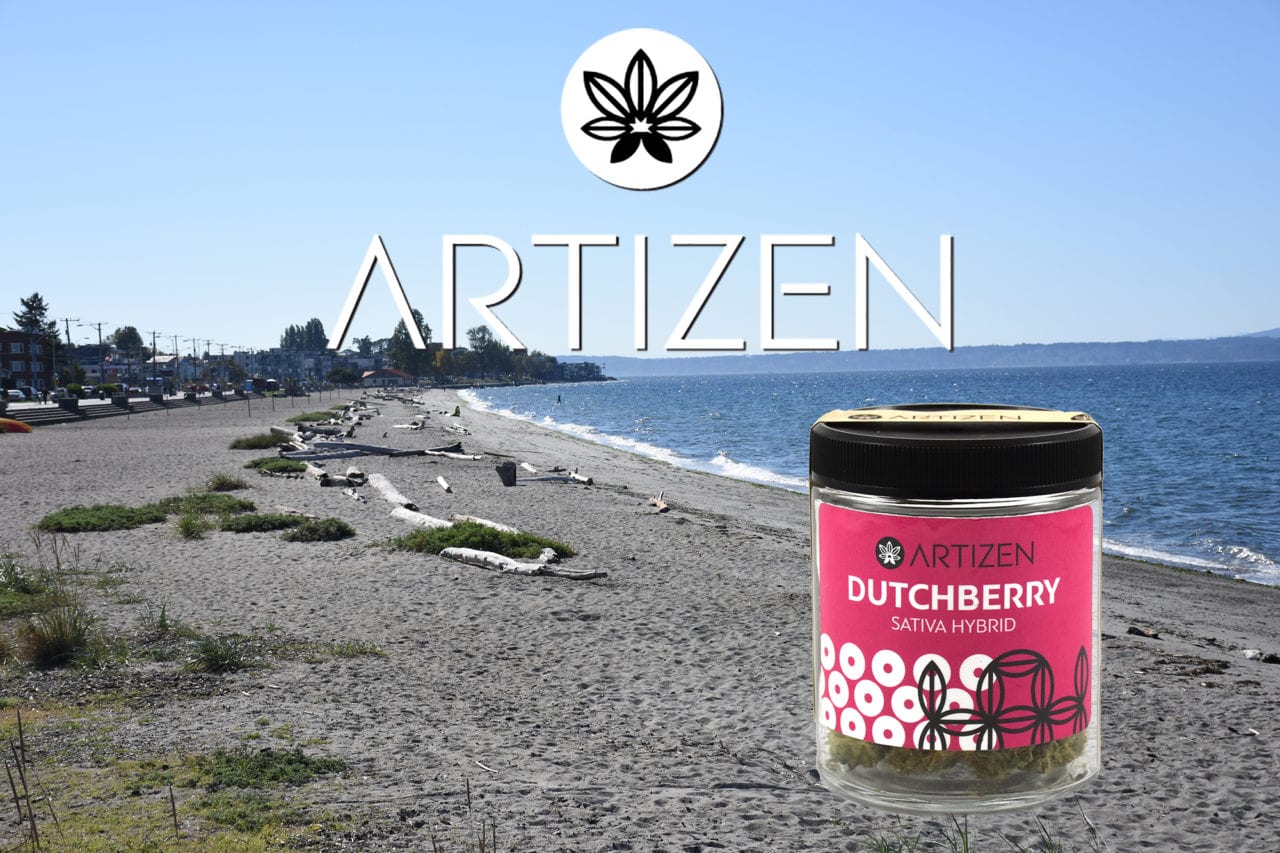If you know anything at all about cannabis, you’re probably well acquainted with the two major cannabinoids, THC and CBD. THC, of course, is what puts the “high” in cannabis; CBD has been shown to deliver a wealth of potential medicinal benefits ranging from pain relief to anxiety reduction to better and more sound sleep. But they’re hardly the end of the story: Researchers have identified roughly 150 cannabinoids so far, and it’s quite possible the list will continue to grow.
Today, we’d like to introduce you to a minor cannabinoid with some major potential: The CBN cannabinoid. It’s gotten some buzz for its potential as a sleep aid, but it turns out that’s only the tip of the iceberg when it comes to CBN benefits. If you’re curious about how to make use of this intriguing “new” cannabis compound, this post is for you!
What Is CBN?
Of course, we were kidding when we described CBN as “new” a moment ago. The cannabinoid otherwise known as “cannabinol” was actually identified way back in 1896. And at first, scientists mistook CBN effects for those of THC, the chemical compound most responsible for the cannabis plant’s “high.”
That all changed with the identification of THC in 1964, though as it turns out, CBN is actually mildly psychoactive, roughly 25% as much as THC. You might think of CBN as THC’s “younger sibling” because it’s created by the breakdown of THC in the presence of oxygen. But CBN’s effects are only slightly related to THC’s, that slight psychoactivity aside.
CBN Effects: Hope for an All-Natural Sleep Aid?

Without much doubt, the potential CBD effect that’s gotten the most attention thus far is for its supposed sedative properties. But thus far, the science is a little unclear on this front. One rodent-based study found that CBN acted as a sedative, but others have for the most part failed to corroborate these findings. One recent study, for instance, found that the evidence for CBN promoting deeper sleep is in fact fairly slim.
One small-scale human study from 1976 found that CBN caused sedation in conjunction with THC, though not by itself. And another study suggests that you need much more CBN than THC to achieve the same sedative effects as THC by itself. Confusing things even more, still another study indicates that CBN actually inhibits the sedative effects of THC, even though the two are extremely similar in terms of their molecular structure.
All that said, stoner lore points to aged cannabis as having “sleepy” effects. Is there any truth to this? Remember a moment ago when we pointed out that CBN results from the breakdown of THC? That might suggest that it’s the higher CBN content making us sleepy. But of course, anecdotal—or self-reported—evidence is much harder to confirm than that developed by clinical studies. So for the moment at least, we’ll go on the record saying that there’s no definitive proof that CBN is sedative, though many people have found this to be true in their own experience.
That said, there are other promising signs that CBN has something to offer; here are a few of the better-documented ones.

CBN Cannabinoid Benefits: Bone Support As We Age?
While it may not be of much concern for those of us under the age of 50, degenerative conditions such as osteoporosis—or loss of bone density—can present major challenges to us as we age. One 2009 study found that CBN may help reverse the bone loss associated with osteoporosis. Another study suggests that CBN may play a role in activating stem cells, in turn spurring the production of new bone.
Seeing that CBN cannabis is fairly non-intoxicating compared with that containing higher amounts of THC, this suggests a new and medically acceptable intervention for those who suffer from osteoporosis—up to 20% of women and 5% of men over the age of 50.
What Does CBN Do? Potential Antibacterial Qualities

Thus far, many cannabinoids and terpenes have been studied for their potential antibacterial and antifungal properties, among others. Especially in an age of overmedication in which large numbers of us have developed resistance to pharmaceutical antibacterials, the rise of drug-resistant bacteria such as MRSA is one of the most worrisome signs for hospital staff. That’s why a study showing that CBN is effective against Staphylococcus aureus, one of the most threatening of these new bacteria, is welcome news in the fight against these “super bugs.”
CBN Cannabinoid: An Anti-Inflammatory?
Just as with antibacterial effects, many cannabinoids and terpenes are being researched for their anti-inflammatory properties, something we already know the two major cannabinoids, THC and CBD, do quite well. One rodent-based study found that CBN reduced the painful joint swelling associated with arthritis. More research is needed, but this is cause for hope among those who suffer from this uncomfortable disorder.
CBN Cannabinoid: An All-Natural Immune Booster?
For some in the medical cannabis community, there’s debate as to whether cannabinoids such as CBN are medicines—meant to be taken occasionally—or supplements, meant to be taken in low doses more or less regularly.
One piece of evidence on the supplement side is the finding that CBN might give a lift to the body’s own natural disease-fighting network. One study noted that—along with the better-understood cannabinoid CBD—CBN may help modulate and improve the normal functioning of the immune system. Does that mean we might see CBN supplements in the near future? The way things are going in the fast-moving cannabis world, it wouldn’t surprise us at all!
CBN Benefits: A Treatment for Glaucoma?
Once upon a time, “I’m only using marijuana for my glaucoma, officer” was a favorite stoner joke. But in all seriousness, several compounds—including the CBN cannabinoid—have been shown to reduce intraocular pressure, the biggest risk factor for this degenerative and irreversible eye disorder. Here’s the kicker: One of those compounds is THC, and it turns out that taking enough of it to sufficiently reduce intraocular pressure would require you to be more or less permanently high (hey, no judgment there!). But as noted earlier, CBN is far less psychoactive than is THC, making it a potential substitute in the prevention of glaucoma and other eye diseases.
CBN Effects: In Conclusion
We hope you leave this post with newfound appreciation for this minor cannabinoid. If you have any further questions about the CBD cannabinoid (or any other topics in the world of marijuana), don’t hesitate to ask. We’re always here to help!
Stop by a Greenside Rec dispensary today or peruse our online menus to see what CBN-rich products we might currently have in stock. We look forward to serving you!





